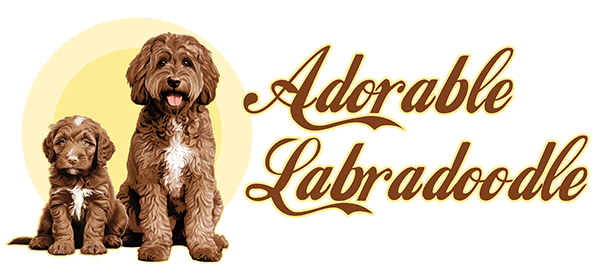Labradoodles are intelligent, affectionate, and energetic dogs that make wonderful companions. Whether you have just welcomed a Labradoodle puppy into your home or are preparing for its arrival, understanding proper care is crucial. From feeding and training to grooming and exercise, here’s everything you need to know about raising a happy and healthy Labradoodle puppy.
Preparing Your Home for a Labradoodle Puppy
Before your Labradoodle puppy arrives, it’s essential to create a safe and comfortable environment. Puppies are naturally curious, so puppy-proofing your home is a must. Secure electrical cords, remove toxic plants, and keep small objects out of reach. Providing a designated sleeping area, such as a crate or dog bed, will help your Labradoodle puppy feel secure.
Essential Supplies for Your Labradoodle Puppy
- High-quality puppy food – Look for a well-balanced diet that meets your puppy’s nutritional needs.
- Food and water bowls – Stainless steel or ceramic bowls are best for hygiene.
- Crate and bedding – A crate helps with training and provides a cozy retreat.
- Chew toys and interactive toys – Labradoodle puppies are playful and need mental stimulation.
- Grooming tools – Since Labradoodles have unique coats, regular brushing is essential.
Feeding Your Labradoodle Puppy: Nutrition and Diet
Proper nutrition is vital for the growth and development of a Labradoodle puppy. Choose a high-quality puppy food that supports healthy bones, muscles, and brain development. Puppies typically require three to four meals a day until they reach about six months of age.
Feeding Guidelines for Labradoodle Puppies
- Age 8-12 weeks – Feed four small meals per day.
- Age 3-6 months – Reduce to three meals daily.
- Age 6+ months – Two meals a day are usually sufficient.
Avoid overfeeding, as Labradoodles can gain weight quickly. Fresh water should always be available, and occasional healthy treats can be used for training purposes.
Training and Socialization for a Well-Behaved Labradoodle
Labradoodle puppies are highly intelligent and eager to learn. Early training and socialization are essential to raising a well-mannered dog.
Basic Training Commands
Start with basic obedience training, such as:
- Sit – One of the easiest commands to teach.
- Stay – Helps prevent unwanted behaviors.
- Come – Crucial for safety, especially when off-leash.
- Leave it – Prevents puppies from picking up harmful objects.
Positive reinforcement works best with Labradoodles. Reward good behavior with praise, treats, or toys. Consistency and patience are key to successful training.
Socialization Tips for Labradoodle Puppies
Exposing your Labradoodle puppy to different environments, people, and animals is crucial for their development. Arrange playdates with other dogs, take walks in new locations, and introduce various sounds and experiences to prevent fearfulness.
Grooming Your Labradoodle Puppy: Coat Care and Maintenance
Labradoodles have unique coats that require regular maintenance. Their fur can be curly, wavy, or straight, and grooming routines will vary depending on coat type.
Tips for Grooming a Labradoodle Puppy
- Brushing – Brush your Labradoodle at least three times a week to prevent matting.
- Bathing – Bathe your puppy once a month or as needed, using a gentle dog shampoo.
- Ear Cleaning – Labradoodles are prone to ear infections; clean their ears regularly.
- Trimming – A professional groomer can help maintain a Labradoodle’s coat and trim around sensitive areas like the eyes and paws.
Regular grooming keeps your puppy comfortable and prevents skin issues.
Exercise and Play: Keeping Your Labradoodle Active
Labradoodle puppies are energetic and require plenty of exercise. Daily playtime and walks are essential for their physical and mental well-being.
Best Activities for a Labradoodle Puppy
- Short walks – Gradually increase the distance as your puppy grows.
- Fetch and tug-of-war – Great ways to burn energy and bond with your pup.
- Puzzle toys – Stimulate your Labradoodle’s mind with interactive toys.
- Training games – Combine exercise with learning through agility training or obedience exercises.
Avoid excessive high-impact activities, like long runs, until your Labradoodle puppy’s joints fully develop.
Healthcare and Vet Visits
Regular veterinary care is crucial for your Labradoodle puppy’s health. Schedule vaccinations, deworming, and routine check-ups as recommended by your vet.
Common Health Concerns in Labradoodles
- Ear infections – Regular cleaning helps prevent issues.
- Hip dysplasia – Maintain a healthy weight to reduce joint strain.
- Allergies – Watch for signs of food or environmental allergies.
By staying proactive with healthcare, you can ensure your Labradoodle puppy grows into a happy and healthy adult dog.
Final Thoughts
Caring for a Labradoodle puppy involves a combination of proper nutrition, training, grooming, and exercise. By providing a loving and structured environment, you’ll help your puppy develop into a well-behaved and affectionate companion. With consistent care, your Labradoodle will be a loyal and joyful member of your family for years to come.



